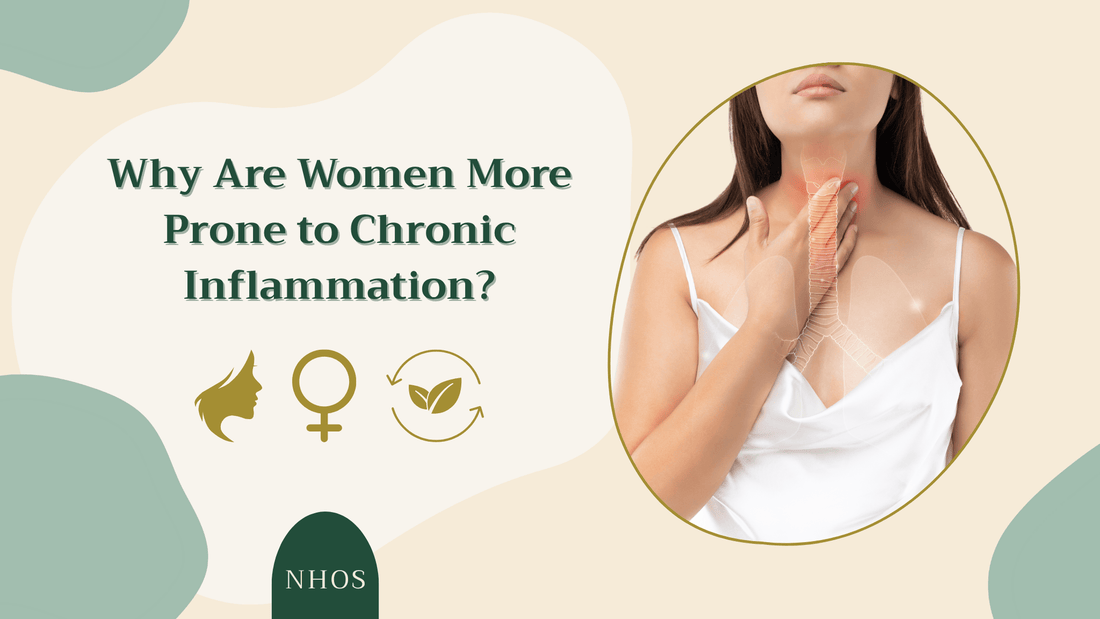
Why Are Women More Prone to Chronic Inflammation?
When we hear “inflammation,” we often think of redness, swelling, or pain. But there’s another type — chronic inflammation — that’s much quieter and longer-lasting. It can show up as fatigue, bloating, brain fog, joint stiffness, or simply feeling “off” for weeks or months.
And here’s something important: women tend to experience it more often than men. But why?
🌸 A Real-Life Example
Meet Rachel, 38. She’s a busy working mom who started feeling tired all the time. Her digestion was off, her joints ached in the mornings, and no amount of coffee seemed to help. Blood tests showed no major issues, but her doctor mentioned a possibility: low-grade chronic inflammation.
With some changes in diet, stress management, and sleep habits, Rachel began feeling like herself again in a few months.
🔍 Why Women?
Several reasons make women more vulnerable to chronic inflammation:
1. Hormonal Shifts
Estrogen and progesterone affect immune balance. During PMS, pregnancy, or menopause, hormone swings can increase inflammation.
2. Stronger Immune Systems
Women’s immune systems are more active — great for fighting infections, but it also raises the risk of autoimmune conditions (like lupus or thyroid issues), which are inflammation-related.
3. Stress & Mental Load
Women often carry emotional and multitasking stress. Chronic stress raises cortisol and weakens immune regulation, leading to more inflammation over time.
4. Gut Differences
Women may be more sensitive to gut imbalances, which affects immune response. A disrupted gut can fuel systemic inflammation.
🥗 What Helps: Simple Nutrition Tips
The right foods can gently soothe the body and reduce inflammation over time. Start here:
Load up on: Berries, Leafy greens, Fatty fish (like salmon), Garlic & onions, Sacha inchi oil, Turmeric & ginger
Limit or avoid: Refined sugar, Sugary drinks, Fried or processed foods, Excess refined carbs
Support your gut: Try fermented foods like yogurt, kimchi, or kefir. Or consider a daily probiotic.
🌿 Lifestyle Matters Too
- Sleep 7–9 hours – your body heals during rest
- Move daily – gentle walks or yoga are great starters
- Breathe deeply – stress reduction lowers inflammation
- Listen to your body – don’t ignore long-term “minor” symptoms
💬 Final Note
If you’ve been feeling off — tired, puffy, moody, or foggy — it might not just be “in your head.” Chronic inflammation is real, and women are more sensitive to its effects. But with some simple shifts in how you eat, rest, and care for yourself, healing is absolutely possible.
Small changes. Big difference. Your body will thank you. 💛
